Peppermint Oil Repellent
Peppermint oil is a powerful ally in the battle against house spiders. Known for its strong, refreshing aroma, peppermint oil is disliked by spiders due to its intense odor. To utilize this effectively around your home, you'll want to whip up a peppermint oil spray.
To make your spider-repellent spray, start by finding a clean spray bottle. Add water to this bottle, filling it nearly to the top but leaving some room for the essential oil. For every cup of water in the spray bottle, mix in 15-20 drops of peppermint oil. This ratio is potent enough to ensure the smell repels spiders but is still pleasant for human noses.
Once you've added both the water and the oil, tighten the spray bottle cap securely and give the mixture a vigorous shake. This shake is crucial as it helps to distribute the oil evenly throughout the water.
To apply, target areas where spiders often frequent or enter the home, such as:
- Windowsills
- Doorways
- Nooks where the walls meet the ceilings
- Corners of rooms
- Behind furniture
Carefully use the spray away from fabrics that may get stained, and always test a small hidden area first if you're uncertain.
Regularly using your peppermint spray will not only keep spiders out but will leave your house smelling wonderfully minty. Make it a ritual after general cleaning sessions or couple its use with specific bursts when you're expecting higher spider activity, typically in early autumn or lead-up to winter months.
For additional effectiveness, every few weeks, complement your spraying routine with fresh peppermint plants near entryways. These act as an extra deterrent and natural decor. Reapply the oil solution bi-weekly or after heavy cleaning.
By staying proactive with your peppermint, spiders should soon receive the message that they're less than welcome without harming them or using harsh chemicals.
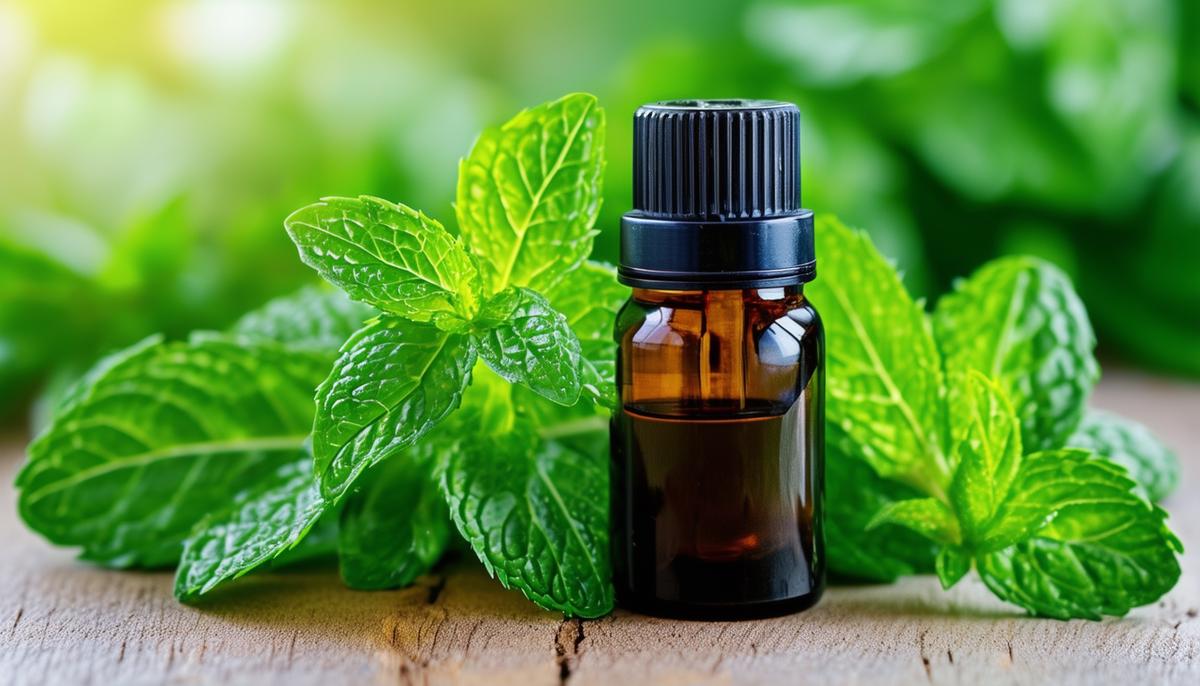
Sealing Entry Points
Over the months, houses naturally form small cracks and crevices that not only lose energy but also act as an invitation to spiders. By inspecting your home's structure—paying close attention to windows, doors, and basement entry points—you can spot these potential entry points. Once these are identified, it's time to seal them.
Silicone or acrylic latex caulk is your best friend for sealing jobs. Both materials are known for their durability, flexibility, and resistance to harsh weather conditions, making them ideal for both interior and exterior use. Silicone caulks boast improved water resistance, which is perfect for areas exposed to moisture like kitchens and bathrooms. On the other hand, acrylic latex is easier to apply and clean, providing a paintable surface.
Equipping yourself with a quality caulk gun can make this task achievable. Calmly approach each line with a steady hand, applying even pressure to push the caulk deep into the cracks, ensuring that no crevice is left uncovered. Smoothing out the caulk with a wet finger or a special smoothing tool results in a tidier appearance.
This preventative action accomplishes more than just deterring spiders; it also assists in maintaining a consistent temperature in your home leading to potential energy savings.
By blocking these paths, you prompt spiders to set up camp elsewhere. Combine this method with regular perimeter checks and maintenance, especially following extreme weather seasons. Being proactive in this area ensures ongoing peace of mind.
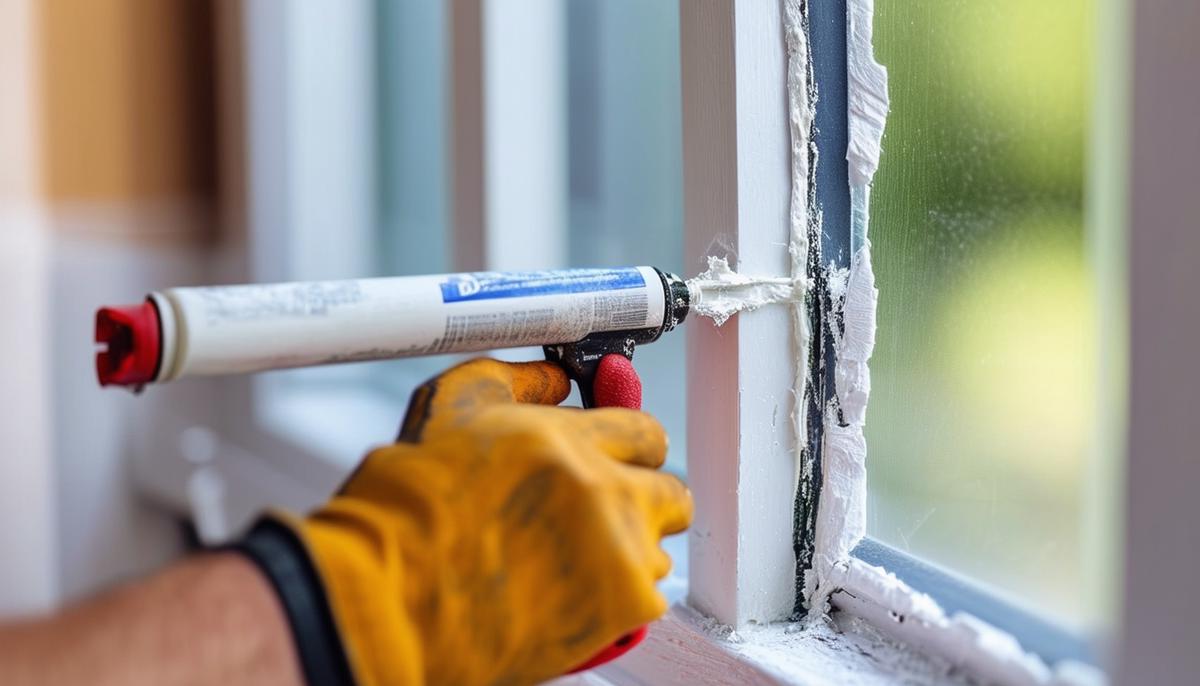
Natural Spider Deterrents
Vinegar stands as a stalwart in the arsenal against spiders, famed not just for dressing salads but also for its efficacy as a spider repellent. Its sharp, acidic scent is anathema to spiders, making distilled white vinegar a must-have in your anti-spider efforts. To create an effective vinegar solution:
- Mix equal parts water and vinegar in a spray bottle.
- Use this to mist the hidden corners of your home, such as the undersides of furniture, backs of cupboards, and anywhere spiders like to lurk.
Caution is advised to avoid spraying it on delicate surfaces where the acidity might cause damage.
Spiders seem particularly perturbed by the zestful zing of lemon, lime, or orange peels. These can be employed simply by rubbing the peels directly on window sills, bookshelves, and spots prone to these eight-legged intruders. For a more prolonged effect, you can concoct a citrus spray by infusing water with citrus peel; let it steep overnight, strain, then pour into a spray bottle. This refreshing mist can be spritzed routinely around potential spider entry points and hideouts.
Cinnamon not only spices up your pantry but also serves as a formidable foe against household spiders. Its warm scent is discouraging to spiders. Strew cinnamon sticks strategically around the home, or consider dabbing a few drops of cinnamon essential oil onto cotton balls and distribute these throughout the building. One could even blend cinnamon with water to create a spray with spider-deterring properties.
To effectively consolidate these natural deterrents, integrate them into your regular cleaning routine. Routine spritzing and positioning of products like vinegar, citrus, and cinnamon can serve to ensure that spiders receive a consistent message: they are not invited to stay. Engage in periodic reassessment and replenishment of repellents, particularly after general house cleanings or weather changes that might weaken their potency.
Together with sealing entry points and using peppermint, these natural elements harmonize to form a robust defense system against arachnids. While spiders may not appreciate these scented selections, we humans can breathe easy and enjoy an aromatic abode that's blissfully bug-free!
By diligently following these aromatic and practical strategies, you preserve the sanctity of your home and tap into nature's own solace, showcasing that in the war on creepy crawlies, mother nature provides some of the finest tools.
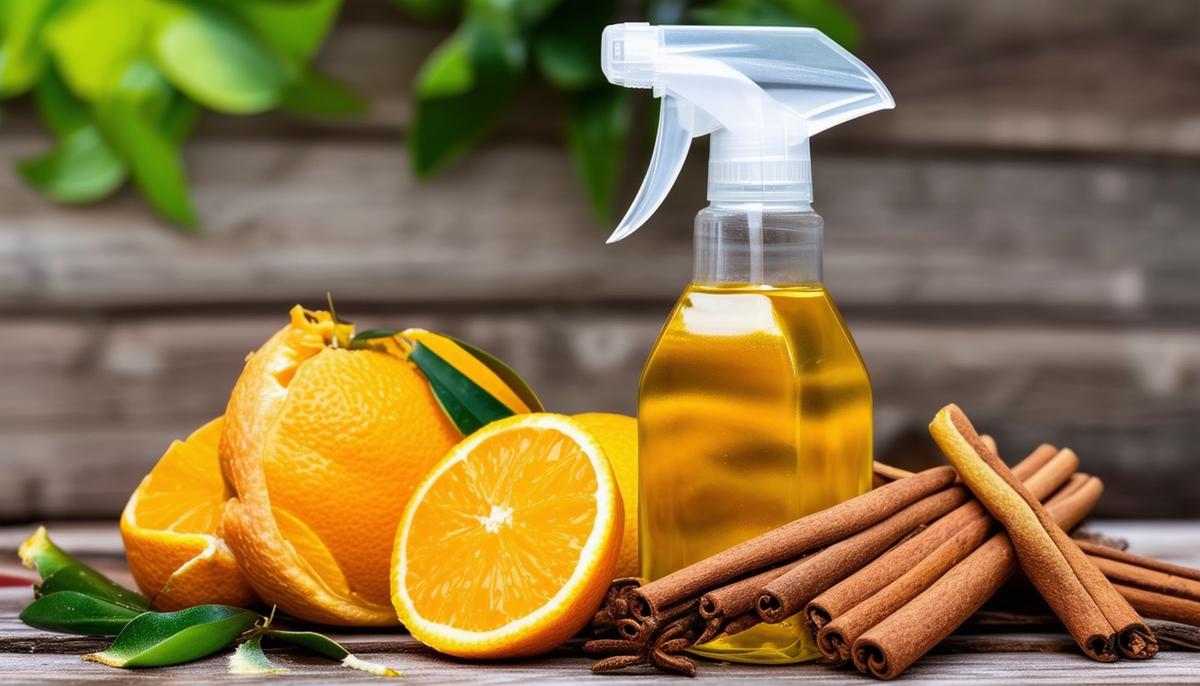
Maintenance and Cleaning
Keeping your home clean is a proactive measure to ward off spiders. A routine cleaning schedule that targets spider-prone areas plays a crucial role in making your abode less inviting to these arachnids.
Begin by focusing on less frequented corners of your home. Spiders prefer quiet, undisturbed places to settle and spin their webs. Regularly dusting these areas, especially upper corners of rooms and under furniture, makes these spaces less hospitable for them. Using a long-handled duster or vacuum with an extension can help you reach deep recesses.
Attending to cobwebs promptly is essential. Cobwebs indicate that spiders have made your home their own. Regularly patrol for webs, paying extra attention during the spider peak season in early fall, and remove them with a cobweb duster or vacuum brush attachment.
Next, ensure that the areas near entry points—such as windows, doors, and air vents—are kept clean. Since these are common avenues for pests to enter, keeping them free from dirt and debris can reduce their attractiveness to spiders. Make it part of your routine to wipe down window sills and vacuum around door thresholds.
In your kitchen and bathroom, be extra diligent. Spiders may seek out these spots due to the availability of water, so it's important to keep sinks, bathtubs, and surrounding areas dry when not in use. Wipe down surfaces after every use to discourage spiders.
General decluttering throughout the house is beneficial. Clutter acts as a fantastic hiding spot for spiders. Keeping your area tidy, disposing of unused items, and storing essentials neatly can dramatically decrease the nooks and crannies available for spiders to call home.
Finally, during your cleaning process, incorporate the use of essentials oils like lavender or vinegar in your routine. A diluted solution in water used when mopping floors or wiping surfaces can act as an additional deterrent.
By maintaining these practices, you ensure a clean home and strategically discourage spiders from taking up residence.
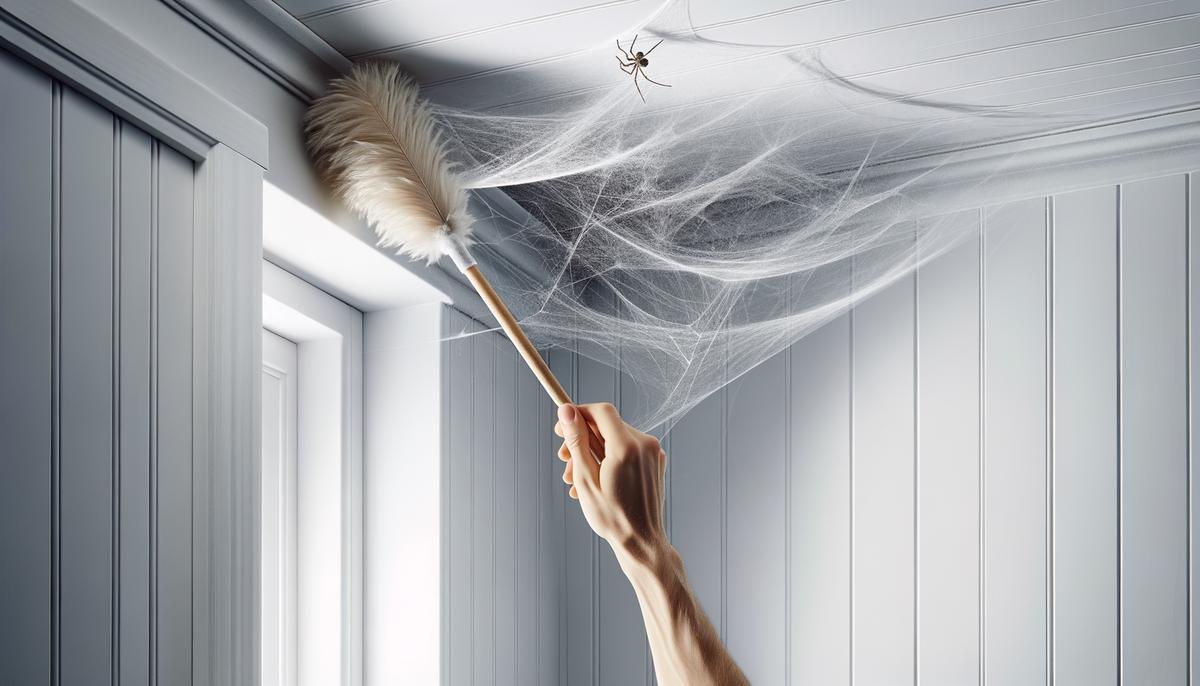
Conkers Myth or Fact
Despite their charming appearance scattered beneath horse chestnut trees in autumn, whether conkers genuinely act as a spider repellent remains a topic of curiosity. Many of us have fond memories of collecting these glossy seeds with the promise that placing them around the house would deter spiders. But does this method stand up under scientific scrutiny?
Recent studies suggest that conkers might be more about decorative nostalgia than practical pest control. A grassroots experiment conducted by schoolchildren in 2010, supported by the Royal Society of Chemistry, concluded that spiders do not exhibit any particular aversion to conkers.1 They placed conkers in corners and observed spider's reactions and movements, finding no significant avoidance that could lend credibility to the lore.
Further scientific research hints at a lack of a repelling chemical compound in conkers that would affect spiders. Scientists argue that the saponin found in conkers, which can be toxic to certain animals and insects, does not have the same repellant effect on spiders as it might on moths or other pests.2
However, even if science might not support the effectiveness of conkers as a spider repellent, integrating them into autumnal decor remains a delightful tradition. It preserves that spark of child-like wonder associated with those crisp fall mornings spent conker-collecting – though perhaps they should accessorize our mantelpieces rather than guard our windowsills against eight-legged guests.
While undoubtedly charming in folklore and fall festivities, conkers appear to lack the spider-deterring powers often attributed to them. Hence, while they decorate your home with a seasonal flare, relying on more scientifically supported methods for keeping spiders at bay, such as essential oils or thorough house sealing, might prove more effective. Deck your halls with boughs of horse chestnuts if you please, but perhaps reserve the tougher anti-arachnid tasks for proven strategies that ensure comfort and efficacy in your spider strategies.
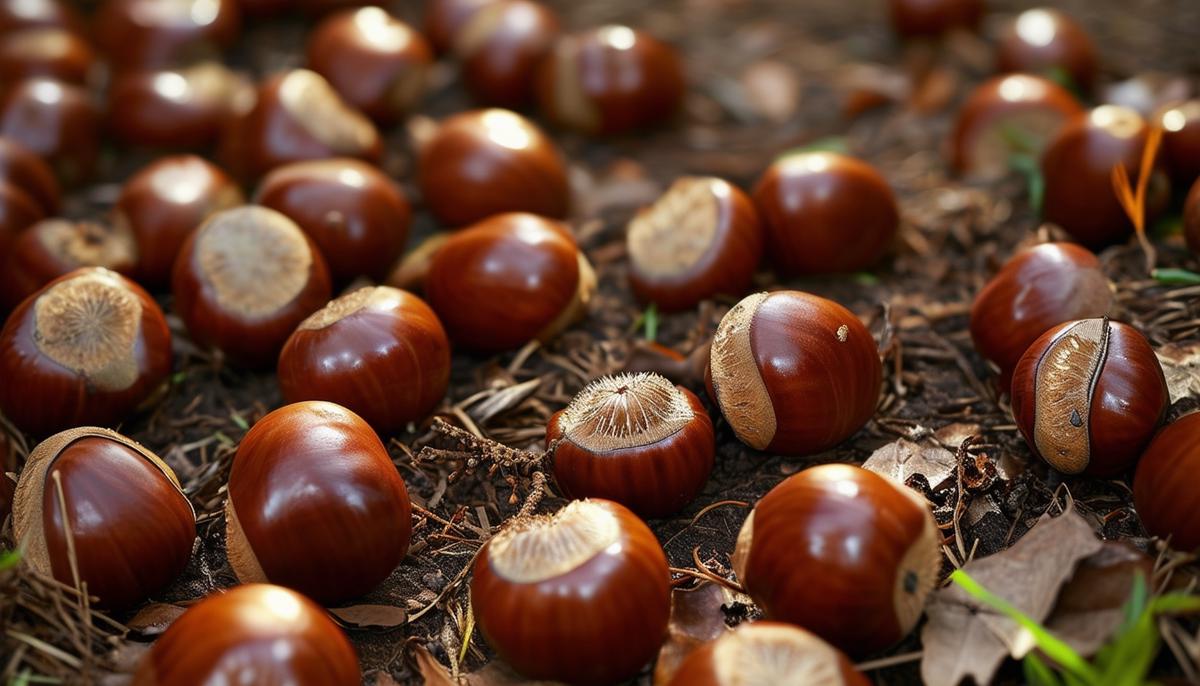
Writio: the AI writer that creates engaging content for websites. Written by Writio.
- Rees S. Schoolchildren debunk conkers as a spider deterrent. The Telegraph. 2010.
- Hart AG, Nesbit R, Goodenough AE. House Spiders (Tegenaria Spp.) Do Not Leave Their Webs to Escape Detection by Conspecifics of a Different Sex: A Test in a Semi-Natural Environment. Insects. 2018;9(4):133.
Leave a Reply